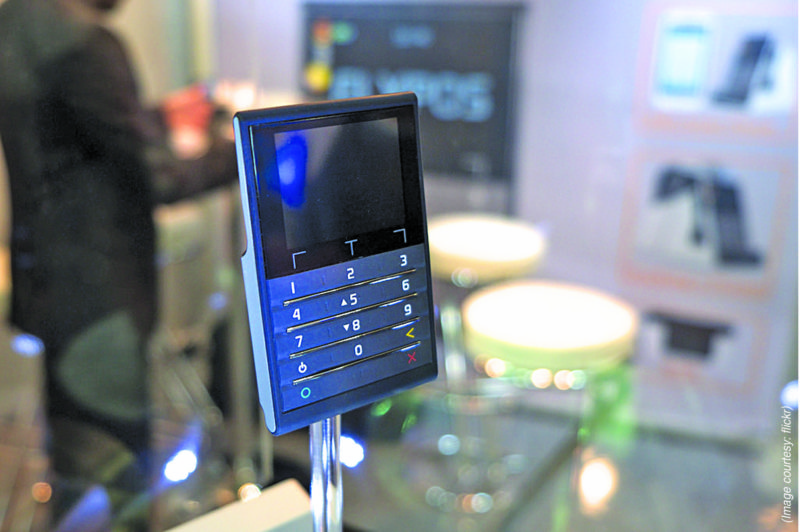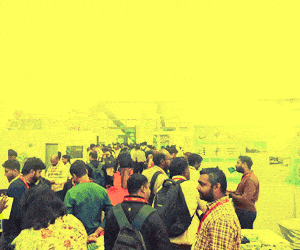- These machines work wirelessly with minimal hardware setup, saving you space and setup costs
Businesses are going flexible with the upheaval of cashless transactions. Demonetisation has further expanded this transition, driving a great surge in the usage of swipe machines and e-wallets. Smart point-of-sale (POS) or mobile POS (mPOS) machines are retailers’ best friends in light of the recent events. Here are a few reasons why enterprises are using smart POS devices to manage their transactions.
Flexible for any business
Traditional POS devices involve a lot of hardware installation and maintenance hassles. Setting up a computer, connecting the devices and upgrading the software is not only time- and space-consuming but also requires external technical service. Enterprises also need to invest in training the staff to handle the cash counter. In nutshell, online enterprises and businesses without a proper payment collection station cannot afford a POS system.
That’s where mPOS machines provide a big advantage. These give the cash counters a chance to work wirelessly with minimal hardware setup (a small card reader hardware, a smartphone and a GPRS or Wi-Fi connection). This also implies less cost in terms of space requirement, setup and external help. Smart POS machines are user-friendly, requiring little to no effort in getting the assigned person started with the technology. So if you move your office to a new location, you do not have to worry about holding off your POS services until the setup and installation completes. Smart POS machines can work anywhere at any time as long as network connectivity is available—be it through Wi-Fi or GSM (via SIM card). That means mPOS devices can be incorporated in any form of business.

For example, UK-based Spire Payments cites an inspiring story of a Chennai-based professional taxi driver who is using the company’s mPOS system for payment collections on the go. Due to the traffic conditions and unanticipated long trips, cash payment becomes a hassle for passengers. The convenience of cashless payment through the smart POS device has helped the taxi driver grow his business, with regular passengers making whole-day or long-trip bookings. Reportedly, the man saw a 15 per cent increase in his revenues. What’s more, he is now getting referral international bookings as well.
National e-commerce giants like Jabong, Flipkart and Myntra have incorporated mPOS terminals into their services to offer customers the convenience of card on delivery—payment through card at the time of delivery.
Saves great costs
Traditional POS machines cost a lot—not just because of the POS machine itself but all the other accessories required such as a control device (computer), barcode scanners and wiring, dedicated setup space and more. Smart POS devices eliminate most of the hardware part (wiring and scanners) through mobile apps, thereby saving a great deal of the cost. An mPOS machine, on an average, costs between ` 8000 and ` 18,000, which is less than the traditional POS setup’s.
Moreover, traditional systems often have a lot of associated costs including monthly maintenance cost, performance charges and duplicate statements cost. Much of these costs is greatly reduced with the use of smart POS devices. A traditional POS machine connected via PSTN (telephone network) or desktop GPRS may tax the user a total of ` 1200 to ` 2000 including different service charges, while a smart POS requires just around ` 400 as a commitment charge with no other costs. Additionally, smart POS machines remove the burden of duplicate transaction download costs, which users may have to pay with many POS systems.
Smart customer service
At the end of the day, the most important aspect of any sales business is customer satisfaction and the likelihood of repeat business. Customer service levels need to be impeccable and smart POS systems fit the bill. These systems enable businesses to serve their customers on the go.
While accepting debit or credit cards like the traditional POS machines, mPOS systems also allow vendors to accept payments via e-wallets, UPI, net banking and other e-payment methods. On top of that, there is the gift of inbuilt tools and data intelligence systems. Enterprises can on-the-spot collect customer data and preferences pattern, which can be utilised for future campaigns. Field-users can manage orders, instantly search product prices through quick databases, conduct survey in-situ and so on.
Decision-makers can devise business strategies using all the collected data to enhance their customer reach. Their customer-facing team can become an impromptu sales promoter through product recommendations, customer engagement and feedbacks. Most importantly, all this data is pushed to the cloud, so it can be accessed anytime, anywhere.POS solution provider, Paynear Solutions, shares a customer story where a national tours and travels company faced difficulty in collecting cash and managing payments across their branches. The mPOS solution from Paynear provided them with a solid platform for payment management and customer data storage. The solution was employed by the company in its 4000 branches across the country. The greatly improved and swift payment collection process helped the company increase its customer retention rate and get newer customer base at national scale.
Automatic transactions
Businesses have struggled with the hassles of maintaining a separate bank account for traditional POS machines and associated service fees. Smart POS systems relieve the users of such compulsions by providing them the freedom of using their existing bank accounts. The transaction is automatic and gets almost instantly credited to the merchant’s account.
Additional income
Smart POS systems not only increase revenues through customer satisfaction but these also give businesses the opportunity to provide some value-added services. In addition to accepting or storing payments, smart POS devices open the window to additional profits through recharges, ticket bookings, domestic money transfer or even mini-ATM services where some profit is credited to the POS machine owner’s account for allowing customers to use the machine as an ATM.
Paynear shares another example of a leading national mobile service provider in Kerala, which, as a pilot project, implemented Paynear’s mPOS solution after demonetisation. Not only did the company exponentially increase its customer satisfaction and loyalty rate through convenient cashless transactions, it greatly increased its revenue by providing customers the service of a mini-ATM with the mPOS machine. The device was implemented in 170 outlets nationally and became an exemplary service during trying circumstances.
Digital is safer and greener
Paperless is one of the most urged initiatives towards going green. Smarter businesses tend to promote paperless transactions by resorting to only digital means for their receipts and payments. Both users and customers are instantly notified of their transactions digitally over their smartphones. The advantage lies in the fact that enterprises can download any transaction receipt copy from the cloud at any time for no cost.
Consequently, the lesser the involvement of physical paperwork, the safer and the easier to manage the transactions. Carrying and maintaining a large amount of cash raises security concerns. Additionally, keeping a track of all transactions on paper becomes very difficult. Digital management and transaction omits all such troubles, keeping a safe, organised and well-recorded track of all your money.




